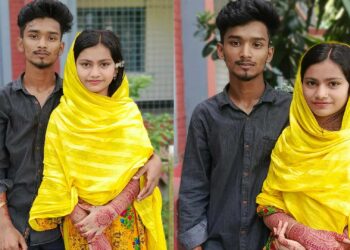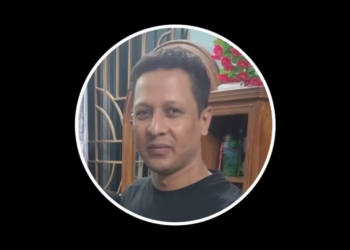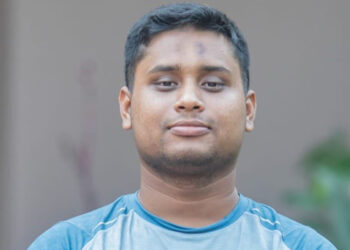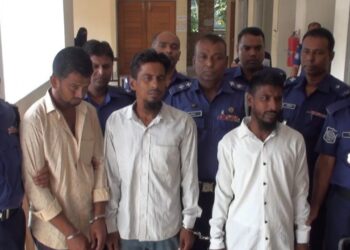1.Introduction
State University of Bangladesh, one of the best private university among all private universities, located in South Purbachal Dhaka, Bangladesh. SUB equips students with the competencies needed to excel in their respective fields, contributing to a skilled workforce essential for Bangladesh’s progress.
This university mission to provide quality education in a competitive and supportive environment. Underlying the vision to universalize higher education and bring forth budding leaders of tomorrow, brought up an active learning community with meticulous care that marries challenging courses of study with experiential learning, innovative research, and numerous co-curricular activities. SUB has expanded its academic breadth and infrastructural development over the years but has established itself as an outstanding institution committed to developing balanced graduates equipped to address challenges of the modern era as well as to contribute to the socio-economic uplift of Bangladesh and the world at large.
2.From Vision to Reality: The Origin Story of State University of Bangladesh
The initiating of State University of Bangladesh in 2002 under the Private University Act of Bangladesh. SUB was driven an ardent passion to address the increasing demand for available and quality higher education within Bangladesh. The journey of SUB was starting on January 1,2002. Current Vice-Chancellor of SUB is Professor Dr. Md. Akhter Hossain Khan and Pro vice chancellor is Professor Dr. Nawzia Yasmin.
2.1.Founders and Initial Vision
SUB was establishing spearheaded by the Labaid Group, with a vision to prioritize and contribute to the education sector of Bangladesh. spearheaded by the Labaid Group, with a vision to prioritize and contribute to the education sector of Bangladesh. The initial vision was to create a higher education institution that could produce intelligent and skilled global citizens equipped with an agile mindset and cutting-edge knowledge.
2.2.Development Over the Years
SUB started its academic journey by focusing on health science programs. It gradually expanded its academic programs. This institute broadened its academic scope to include diverse disciplines. It has now 10 academic departments under three faculties: the School of Business and Social Studies, the School of Science and Technology, and the School of Health Sciences. Plans are underway to introduce two more departments: Data Science, and Music and Theatre Performance.
SUB has consistently emphasized a contemporary, industry-endorsed curriculum and practical learning approaches. Recently, SUB has focused on research and innovation, with the help of faculty and students are actively involved in various research endeavors. The university has published a significant number of scientific papers and maintains research collaborations. The permanent campus continues to develop, with ongoing construction of a 10-story dormitory for students and faculty housing, along with enhanced facilities for sports, dining, and social activities.
Read More: Canada’s Leading 8 Universities: A Comprehensive Academic Overview and Impact Analysis
3.Academic Programs of SUB
State University of Bangladesh has a wide of academic portfolio which are structure to meet the dynamic needs of the job market. The undergraduate programs and graduate programs are carefully conceived to address needs around the world as well as academic needs internationally.
3.1.Faculty of Business Studies: This course help Students who want to develop career advancement or gain specialist competencies. SUB offering both Bachelor of Business Administration (BBA) and Master of Business Administration (MBA). They aimed at developing future leaders and professionals in various aspects of business. It offers the whole gamut of courses to equip students with the requisite knowledge and expertise to perform better with changing times in the world of business.
Undergraduate courses typically include Bachelor of Business Administration (BBA) with specializations such as Finance, Marketing, Human Resource Management and Management Information Systems. All faculty members actively engaged in research, aspects which related to social problems, policy research, as well as research into culture.
3.2.Faculty of Science and technology: Engineering and Technology offers high-intensity courses with the aim to develop innovative thought leaders along with efficient working professionals. SUB offering two subjects of science and technology. The undergraduate courses commonly consist of Bachelor of Science (B.Sc.) courses in Computer Science and Engineering (CSE), Electrical and Electronic Engineering (EEE) and Master of Science (M.Sc.) in Data Science and Machine Learning, Bachelor of Architecture (B. Arch). The courses offer strong foundation of fundamentals backed by proper hands-on experience at laboratories, workshops, design projects, and hands-on acquaintance with industry-grade software and technology.
Programs are generally offered at the postgraduate level to prepare students who want to acquire an overall knowledge about some fields of the discipline to carry out high-level research. All faculty members actively engaged in research, aspects which related to social problems, policy research, as well as research into culture.
3.3.Faculty of Arts and Social Sciences: This faculty is help students through developing their communication skills, increase knowledge of social as well as culture. SUB offer Bachelor of Law (LLB) as well as Master of Law (LLB) , Bachelor of Arts in English (Hons) as well as Master of Arts in English, Master of Arts in TESOL(Teaching English to Speakers of Other Languages),BSS (Hons) in Journalism, Communication and Media Studies (JCMS).All faculty members actively engaged in research, aspects which related to social problems, policy research, as well as research into culture.
3.4.Faculty of Science and Health Sciences: The importance of healthcare sector are increasing day by day. SUB’s Faculty of Science and Health Science has courses to raise scientifically educated individuals as well as prospective health professionals. SUB offer several healthcare sector courses, as Bachelor of Pharmacy (B. Pharm) as well as Master of Pharmacy (M. pharm),Bachelor of Environmental Science, Master of Public Health, Bachelor of Science (B. Sc) in Food Engineering and Nutrition Science, MBA Healthcare Management. With the potential of higher studies as well as research at specialist levels. The faculty actively promotes research work at related fields of pharmaceuticals, biotechnology, as well as environmental sustainability.
4.The Academic Landscape: Nomenclature And Grading of SUB
4.1.Semester system: State University of Bangladesh have both bimester and trimester system. Bimester System (Two Semesters per Year):
•Longer Semesters: Each semester typically lasts for a longer duration (around 5-6 months of academic activity).
•Fewer Courses per Semester: Students usually take a higher number of credit hours but potentially fewer individual courses in each semester.
•Longer Breaks: There are generally longer breaks between semesters.
•Common in Public Universities: The bimester system is the prevalent model in most public universities in Bangladesh.
Trimester System (Three Semesters per Year):
•Shorter Semesters: Each semester is shorter (around 3-4 months of academic activity).
•More Courses per Year: Students take courses across three terms within a year, potentially leading to a higher overall number of courses taken annually.
•Shorter Breaks: Breaks between trimesters are typically shorter.
•Common in Private Universities: Many private universities in Bangladesh have historically adopted the trimester system.
4.2.Grading System: The university has an advanced system of grading to evaluate students’ performance for all the programs into which they are enrolled. The system is letter-grading, where letters correspond to bands of numerically obtained marks on tests. Here are the common structure including:
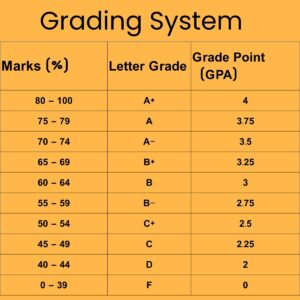
Photo: Grading System
The level of student learning is usually established by an integration of various factors, including:
Assignments: Regular individual or group work to reinforce learning and measure understanding of course material.
Quizzes: Short, periodic tests to measure immediate comprehension of key concepts.
Mid-Term Exams: Comprehensive tests administered at the midpoint of every semester, covering work up to that point.
Final Examinations: Comprehensive final examinations at the conclusion of each semester covering the entire course syllabus.
Project Work and Presentations: Practical assignments and presentations where students can relate theory to practice and exercise communications skills.
Class participation: Consistent attendance at discussion classes and activities, typically forming part of the final mark.
Practical work in the laboratory (science and engineering modules): Laboratory experiments and recording of results, as necessary for the development of technical expertise.
4.3. Waiver system:
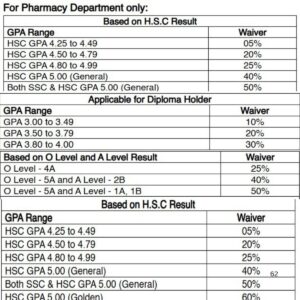
Photo: Waivers
•Other waivers: They also provide other waivers for all female students of SUB will get a 10% waiver. Student will get 5% discount on their tuition fees if they paid full amount within the first installment.
•Special waivers: Siblings/Spouse/children of SUB current students will be get 25% waiver. Group/Corporate, a group of (5) or more students enrolled from a company/ educational institute maybe recommended for 15% group waiver. SUB and State College of Health Science (SCHS) graduates will get 25% waiver. Labaid/ SUB employees family members will get 20% waiver. They also provide waiver on sports which will recommendation based on the performance.
Read More: The Inspiring Growth of Bangladesh’s Pharmaceutical Industry: A Global Success Story till 2025
5. Campus and Facilities:
State University of Bangladesh main campus was in Dhanmondi, Dhaka. As some reasons they shift in their permanent campus which is located in Purbachal.
The main reasons for shifting is University Grants Commission (UGC) of Bangladesh required all private universities have to establish a permanent campus. So SUB is shifting to Purbachal aligns with this regulation and ensures long-term sustainability. Another reasons are space and expansion needs, modern infrastructure and better facilities, enhance learning environment and so on.
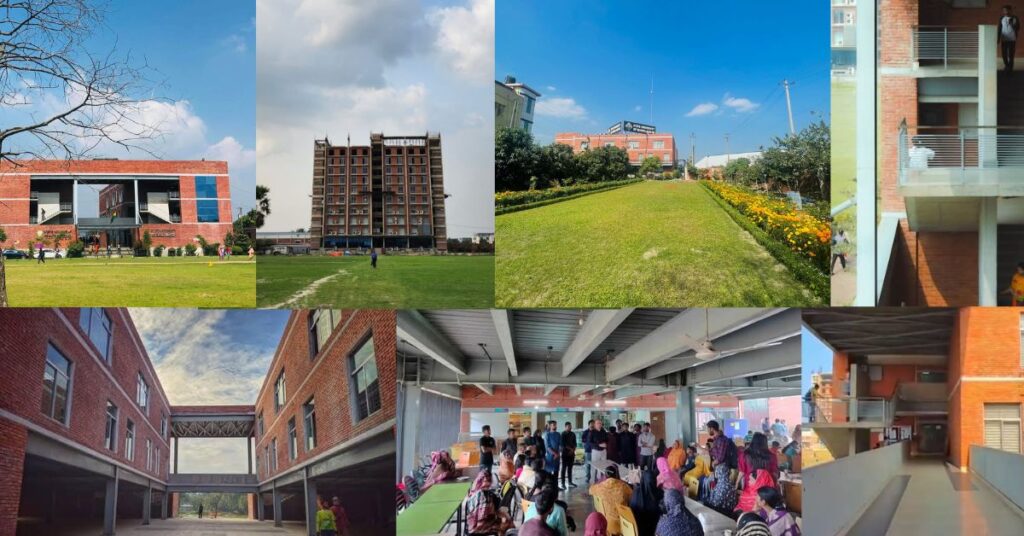
Photo: Campus
5.1.Campus Building
State University of Bangladesh, permanent campus is located in South Purbachal, Dhaka. This campus is designed by Vistaara Architects(Pvt) Limited, with the help of Arch Mustapha Khalid as the managing director. This campus houses has separate building for different faculties and departments. These buildings has,
• Well-equipped to facilitate effective teaching and learning classroom and lettuce halls.
• Separate Labs for each programs, including pharmacy, Food engineering, CSE, Public health and so on.
• Also have studio for Architecture department and media labs for Journalism and media studies.
• Well- decorated seminar rooms which can be used for small group of discussion, presentation and workshops.
5.2.Lab facilities:
As the University’s academic journey by focusing on health science program, they have well-equipped labs. They have eleven teaching laboratories and 3 research laboratories well equipped with modern instruments including ATR-FTIR, HPLC, UV-VIS spectrophotometer, Karl Fischer apparatus, Rotary evaporator, Semi-auto biochemistry analyzer, 8-Station tablet compression machine, Tablet coating machine, Dissolution test apparatus, etc.
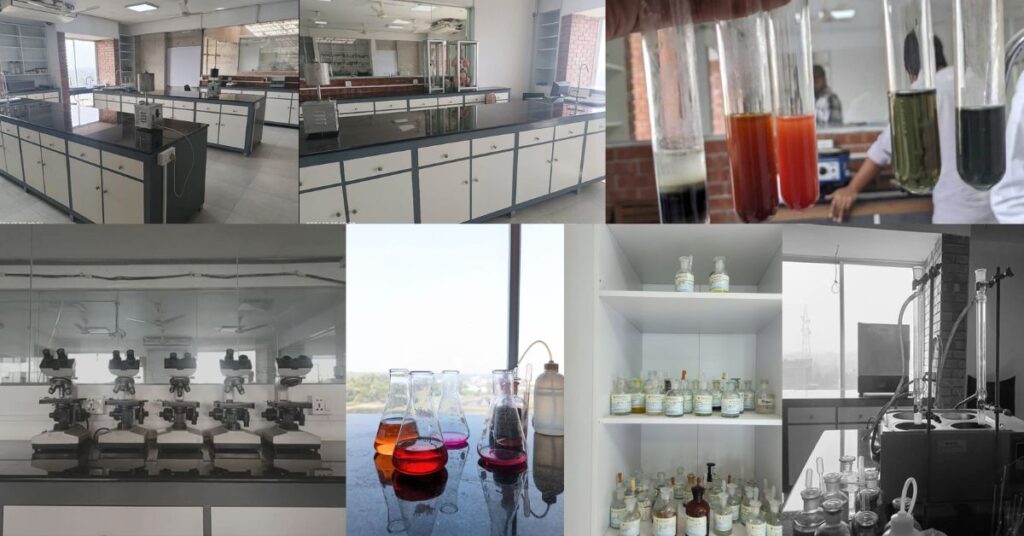
Photo: Labs
5.2.Libraries
This university have two separate libraries. Central one, there have all department books. Any departments student can get books for their development and enhance knowledge. Another one is for Pharmacy department students.
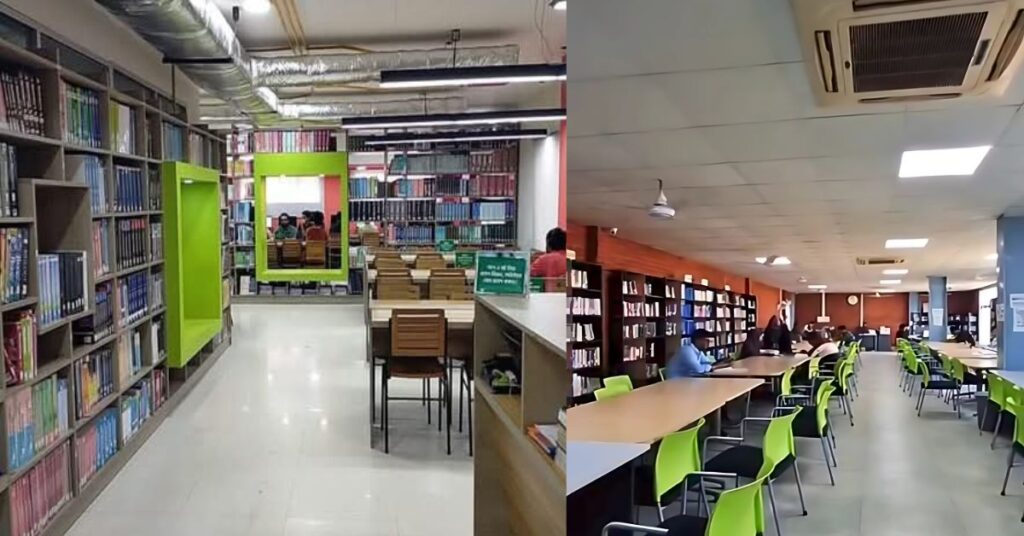
Photo: Libraries
5.3.Transportation
State University of Bangladesh have their own transport system. They provide buses from all places, not only for those students who stay in Dhaka but also they provide transport facilities for Narsingdi students and so on.
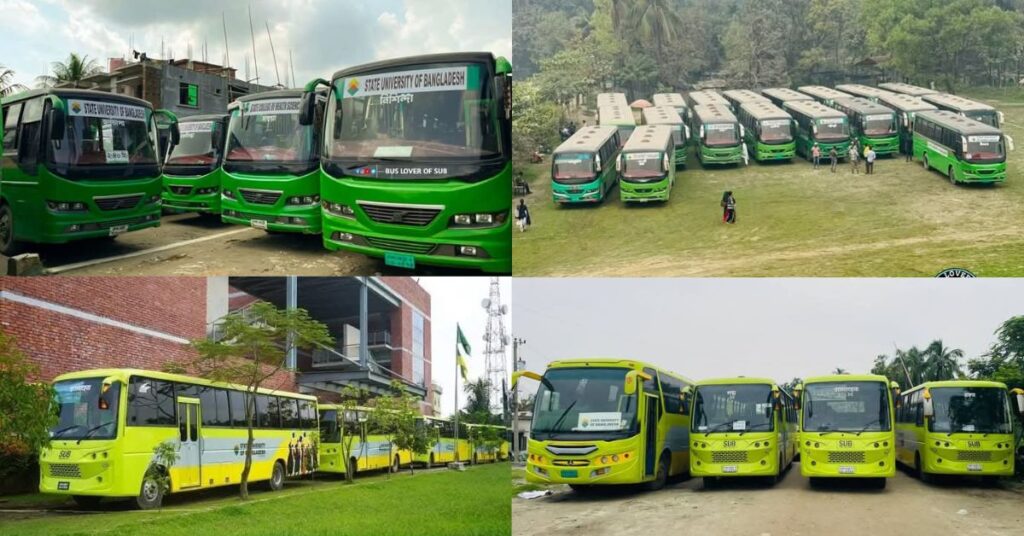
Photo: Transportation
5.4.Cafeteria and sports facilities
SUB provide students and stuffs healthy and good foods. They have two cafeteria in both two buildings. This campus has a big field for sports. Also have indoor games facilities.
The campus also have a stationery shop, medical center, common room for female students, club rooms ,a large auditorium for hosting university events seminars and cultural programs.
6.Empowering Education: The Educators and Innovators of DCC
As a growing private university in Bangladesh, SUB is focusing on contemporary education and research. This institution have an experienced faculty of professional teachers and professors who have an appreciation for teaching and dedicated to building intellectual capabilities among students. They always ready to instructors and catalysts who shape the intellectual landscape of the institution and empower future generations of leaders.
6.1. The Pillars of Knowledge: The Faculty
Faculty of State University of Bangladesh (SUB) forms the bedrock of it’s academic strength. They have experienced professors, dedicated lecturers and assistant professors, also have guest faculties. They also helps students as a mentor and advisors which will help them not only for their job sectors but also for personal growth. Faculty members also engage into research, curriculum development and academic counseling. SUB takes pride in its team of highly qualified and experience educators. Most of the faculty members hold advanced degree from reputed institutions and international universities which helps them to bring a wealth of industry and research experience.
6.2. Fueling Passion and Purpose: Clubs at SUB
State University of Bangladesh have two types of clubs. One is central clubs, every departments students can involve in this clubs and another one is departmental clubs, every departments have their own clubs and activities.
•Debate club: SUB debating club is very active club. It help students to enhance critical thinking, improve communication skills, also intellectual discourse through structured debates and discussions. To increase students interest, they provide certificate course on debate, career planning, intra-university debate fest, intra department debate competition and also workshop.
•Cultural Club: SUB cultural club is very active club. They Fostering cultural appreciation, diversity and also inclusivity through several artistic and cultural expression. They celebrating of seasonal programs and national day, including Boshonto Utsob, Shadhinota Dibosh, Bangla New Year, Borsha Utsob, Winter Fest, Rabindranath and Nazrul Utsob, Nobanno Utsob and Victory Day and so on. Also arrange drama workshop and festival, clubs carnival. Department clubs also arrange their own workshop, festivals.
•Language and public speaking club: This club help students to improve their speaking fluency, language. Helps to simplify language learning, cultural exchange and linguistic diversity to foster global citizenship. They arrange session on listening and speaking skills, spelling Bee/Vocabulary competition/Workshops on vocabulary & spelling, workshops on critical & creative writing, short story writing/telling competitions, film screenings, recitation, travelogue presentations, debating publication of newsletter/ magazines, language Club Olympiad, offering courses on other languages, viz. French, German, Spanish etc.
SUB provide platforms for students which helps them to pursue their interest, develop leadership skills, network with peers, engage in extracurricular activities. They have another clubs including blood club, environmental and social services club, film and photography club, health and wellbeing club, recitation club and also sports club and so on.
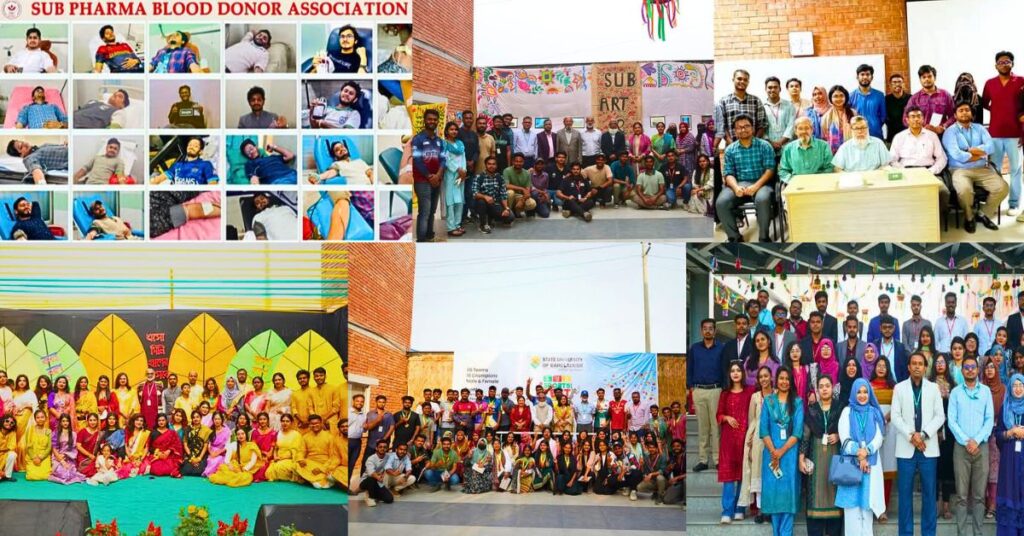
Photo: Clubs
7.A Legacy of Distinction: Achievements and Honors
State University of Bangladesh has achieved great success throughout the course of time it has been operational, with an established reputation as an esteemed university within the higher education framework of Bangladesh. Sub have top positions in multinational companies, NGOs and government agencies. A strong network of successful alumni both in abroad and Bangladesh. Faculty research being published in recognized academic journals. They also have partnership with international universities.
Ranking:
EduRank (2025): Ranks SUB as 55th in Bangladesh, 22nd in Dhaka, and 7164th globally. It also provides subject-specific rankings, indicating areas of research strength.
SCImago Institutions Rankings (2024): Ranked SUB 1916th globally, with specific ranks for research, innovation, and societal impact.
AD Scientific Index (May 2025): Provides rankings based on the H-index of scientists, offering another perspective on research output and impact.
Times Higher Education (THE) Impact Rankings (2024): Included in the 1501+ band globally for its contribution to the UN’s Sustainable Development Goals.
Achievements:
•Law Department Success: The Department of Law has highlighted achievements such as a 100% success rate in the Bar Council Examination and strong performances in national and international moot court competitions. Finalist at the 12th Henry Dunant Moot Court Competition, semi-finalist in the Philip C. Jessup International Law Moot Court Competition 2023
•Pharmacy Department Recognition: Pharmacy department is sometimes cited as a strong area within SUB. A faculty member received the National Science and Technology Award for excellent research (M. Pharm. thesis) and a 3rd Prize at an International Conference on Pharmaceutical Sciences (ICPS-2023).
Vice-chancellors:
• Ahmed (2002)
•M. S. Ilyas Dhami (acting, 2003–2008)
•Iftekhar Ghani Chowdhury (c. 2009–2016)
•Sayeed Salam (September 2017-)
•M. Shahjahan Mina (c. 2019–2020)
•Vacant (as of September 2020)
•Md. Anwarul Kabir (December 2020 – 2022)
• Yasmin (2023)
•Md. Akhter Hossain Khan (2025–present)
Notable Faculty members:
•Professor Md. Saiful Islam Pathan
•Md. Abdur Rahim
•Md. Monirul Islam
•Md. Mahmudul Hassan
•Md. Samiul Islam
•Professor Dr. K. M. Anwarul Islam
•Professor Dr. Abu Shams Mohammad Mahmudul Hoque
•Muhammed Zakir Hossain
• Chandra Barman
•Md. Rezaul Islam
•Shamsul Islam
Alumni
•A. K. M. Nawshad Hossain (Pharmacy)
•A. S. M. Touhidul Hasan, Ph. D. (Computer Science and Engineering)
•Dr. Md. Delwar Hossain (Computer Science and Engineering)
•Dr. Foisal Ahmed (Pharmacy)
•Abdullah Al Mamun (Computer Science and Engineering)
•A K M Faizul Islam (Pharmacy)
•Al Aslam Kanon (Pharmacy)
•Amran Hasan (Architecture
•Mir Saiful Islam Shahed (Business Studies)
•Abdullah Al Mamun (Business Studies)
• Aklima Akter (Law)
• Billal Hossain (Law)
• Arfan Ali (Law)
•Al Mukshid Chowdhury (Journalism, Communication and Media Studies)
•Bony Ibne Kamal (Journalism, Communication and Media Studies)
•Arnob Debnath (Journalism, Communication and Media Studies)
•Ali Reza Hyder (Food Engineering and Nutrition Science)
•Binod Bindu Sharma (Public Health)
These laurels collectively contribute to the growing reputation of State University of Bangladesh as an institution of academic excellence and students’ choice for high-quality higher education in Bangladesh. The professional achievement of SUB alumni in their respective fields of specialization is another element that confers value added and significance to an SUB degree. The university’s commitment to continuous development, combined with an uncompromising commitment to providing an overall education, accounts for the esteem in which it is held by students, parents, employers, and the academic community at large.
Affiliation and membership
•University Grants Commission (UGC) of Bangladesh
•Association of Private Universities of Bangladesh (APUB)
•Pharmacy Council of Bangladesh
•Bangladesh Bar Council
•International Association of Universities (IAU)
8.Conclusion
In the Private higher education landscape of Bangladesh State University of Bangladesh (SUB) has emerged as a significant player since 2002.As SUB starts it’s journey by focusing on health sciences, they expanded it’s academic offering across business, social studies, science and technology. SUB continues to produce graduates who are not only academically sound but also socially responsible and capable.
SUB fosters a holistic learning environment more than just an academic institution. Faculty empowers students with knowledge and critical thinking, diverse academic programs cater to a wide range of aspirations. They also have many achievements and recognition, it’s strong alumni network serves as a powerful testament to the real-world impact of a SUB education.
Reference









